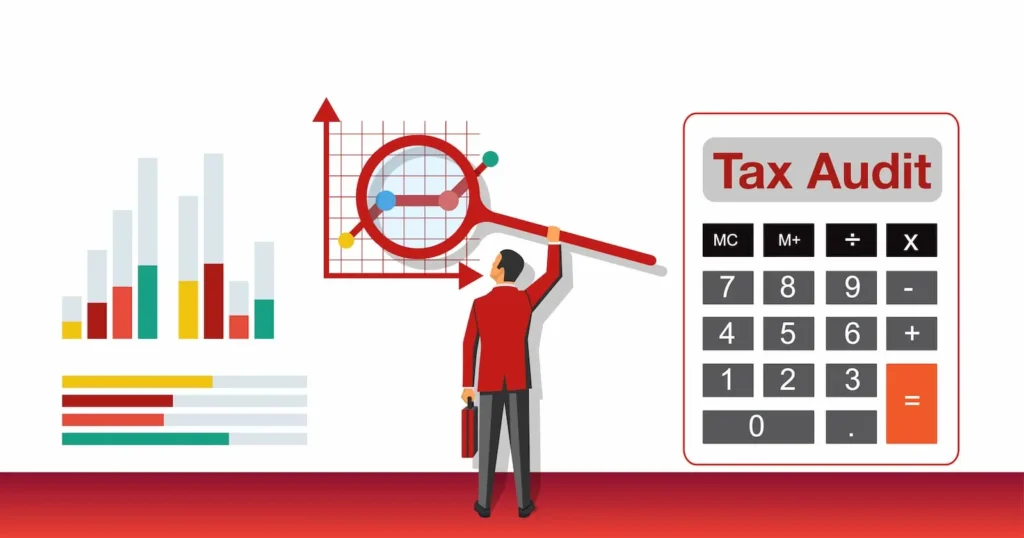
7 Key Aspects of GST Audit by Tax Authorities
7 Key Aspects of GST Audit by Tax Authorities – Navigating through tax regulations can be daunting for any business owner. Among the many compliance requirements, GST Audit stands as a crucial process mandated by tax authorities. In this detailed guide, we delve into the intricacies of GST Audit, shedding light on its significance, process, and tips for taxpayers to navigate it effectively.
What is GST Audit?
GST Audit, short for Goods and Services Tax Audit, is a systematic examination of a taxpayer’s financial records and compliance with GST regulations. It ensures accuracy in tax reporting, detects discrepancies, and promotes transparency in business operations.
Understanding the Purpose of GST Audit:
The primary goal of GST Audit is to verify the accuracy of GST returns filed by taxpayers. It aims to identify any discrepancies between reported figures and actual transactions, ensuring compliance with tax laws and regulations.
What Happens During a GST Audit?
During a GST Audit, tax authorities scrutinize various aspects of a taxpayer’s financial records, including sales, purchases, input tax credits, and GST returns. The process typically involves the following steps:
Preliminary Assessment:Tax authorities initiate the audit process by notifying the taxpayer and requesting relevant documents and records for examination.
Examination of Records: Tax auditors thoroughly review the taxpayer’s financial records, invoices, ledgers, and other relevant documents to verify the accuracy of GST returns filed.
Interviews and Interrogations: Tax auditors may conduct interviews with the taxpayer and key personnel to gather additional information and clarify any discrepancies identified during the audit.
Report Generation: Upon completion of the audit, tax authorities prepare a detailed report outlining their findings, including any discrepancies or violations of GST laws.
Useful Tips for Taxpayers
Navigating through a GST Audit can be challenging for taxpayers. Here are some useful tips to ensure a smooth audit process:
Maintain Accurate Records: Maintain detailed and accurate financial records, including invoices, receipts, and ledgers, to support your GST returns during the audit.
Stay Updated on GST Regulations: Stay abreast of changes in GST laws and regulations to ensure compliance and minimize the risk of errors or discrepancies in tax reporting.
Seek Professional Assistance: Consider hiring a tax consultant or accountant with expertise in GST compliance to guide you through the audit process and address any queries or concerns raised by tax authorities.
Benefits of Audit to Taxpayers
While the prospect of a GST Audit may seem daunting, it offers several benefits to taxpayers:
Enhanced Compliance: GST Audit promotes compliance with tax laws and regulations, helping taxpayers avoid penalties or legal repercussions for non-compliance.
Improved Financial Management: Through the audit process, taxpayers gain insights into their financial operations, identify areas for improvement, and implement measures to enhance efficiency and transparency.
Credibility and Trust: Successfully navigating a GST Audit demonstrates a taxpayer’s commitment to transparency and compliance, fostering trust and credibility among stakeholders, including customers, suppliers, and investors. Check gst return filing status and gst cancellation fees
7 Key Aspects of GST Audit by Tax Authorities FAQ's
Audit under GST by the department refers to the examination of the taxpayer’s records, returns, and other relevant documents to verify compliance with GST laws and regulations. It helps the tax authorities ensure accuracy in reporting, proper payment of taxes, and adherence to statutory provisions.
Tax audit is a systematic examination of a taxpayer’s financial records and statements by a qualified professional, typically a Chartered Accountant, to ensure compliance with tax laws and regulations. Its features include verification of financial statements, assessment of tax liabilities, identification of discrepancies, and reporting of findings to the tax authorities.
GST details in tax audit involve scrutinizing the taxpayer’s GST returns, invoices, input tax credit availed, tax payments made, and other related documents to ensure accuracy and compliance with GST laws. It helps identify any errors or discrepancies in GST reporting and facilitates corrective action.
Section 65 audit under GST pertains to the provision for special audit as per Section 65 of the CGST Act, 2017. It allows the tax authorities to appoint a Chartered Accountant or Cost Accountant to conduct a detailed audit of a taxpayer’s accounts if there are complexities or doubts regarding tax liability computation or compliance.
Frequent issues detected during GST audits include mismatches in GST returns and financial statements, incorrect calculation of taxes, non-compliance with input tax credit provisions, improper maintenance of records, discrepancies in invoices, and failure to comply with statutory requirements.
Apart from the documents mentioned earlier, GST officers may also require additional records such as purchase and sales registers, stock registers, invoices, debit/credit notes, bank statements, accounts books, agreements, contracts, and any other documents relevant to the audit. These documents help in verifying the accuracy of GST compliance and tax payments.
Conclusion (7 Key Aspects of GST Audit by Tax Authorities)
In conclusion, GST Audit is a critical process that ensures transparency, accuracy, and compliance with GST regulations. By understanding the nuances of GST Audit and following the tips outlined in this guide, taxpayers can navigate through the audit process successfully and reap its benefits. Remember, staying proactive and maintaining meticulous records are key to a smooth GST Audit experience. Legalari GST Registration Consultant
